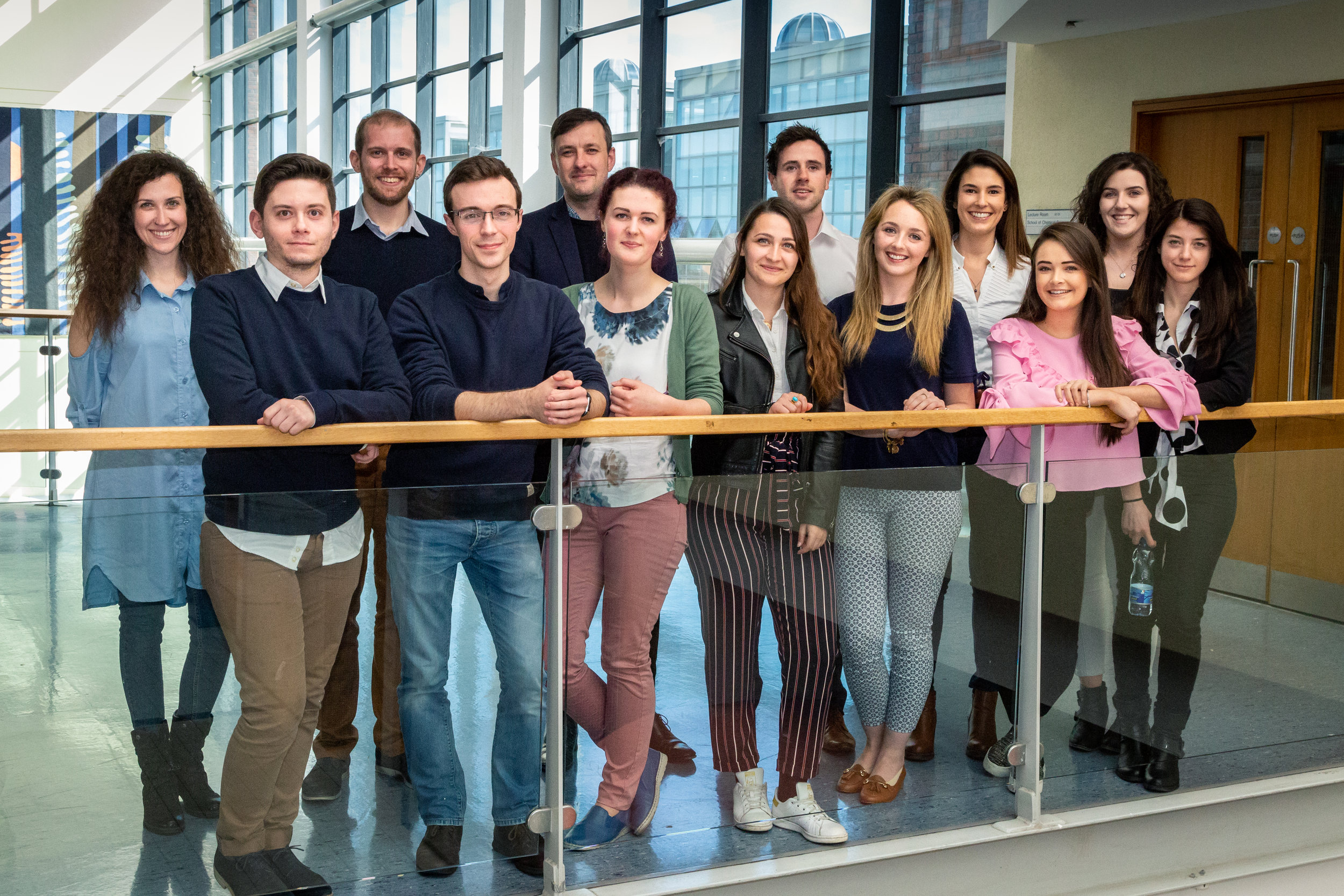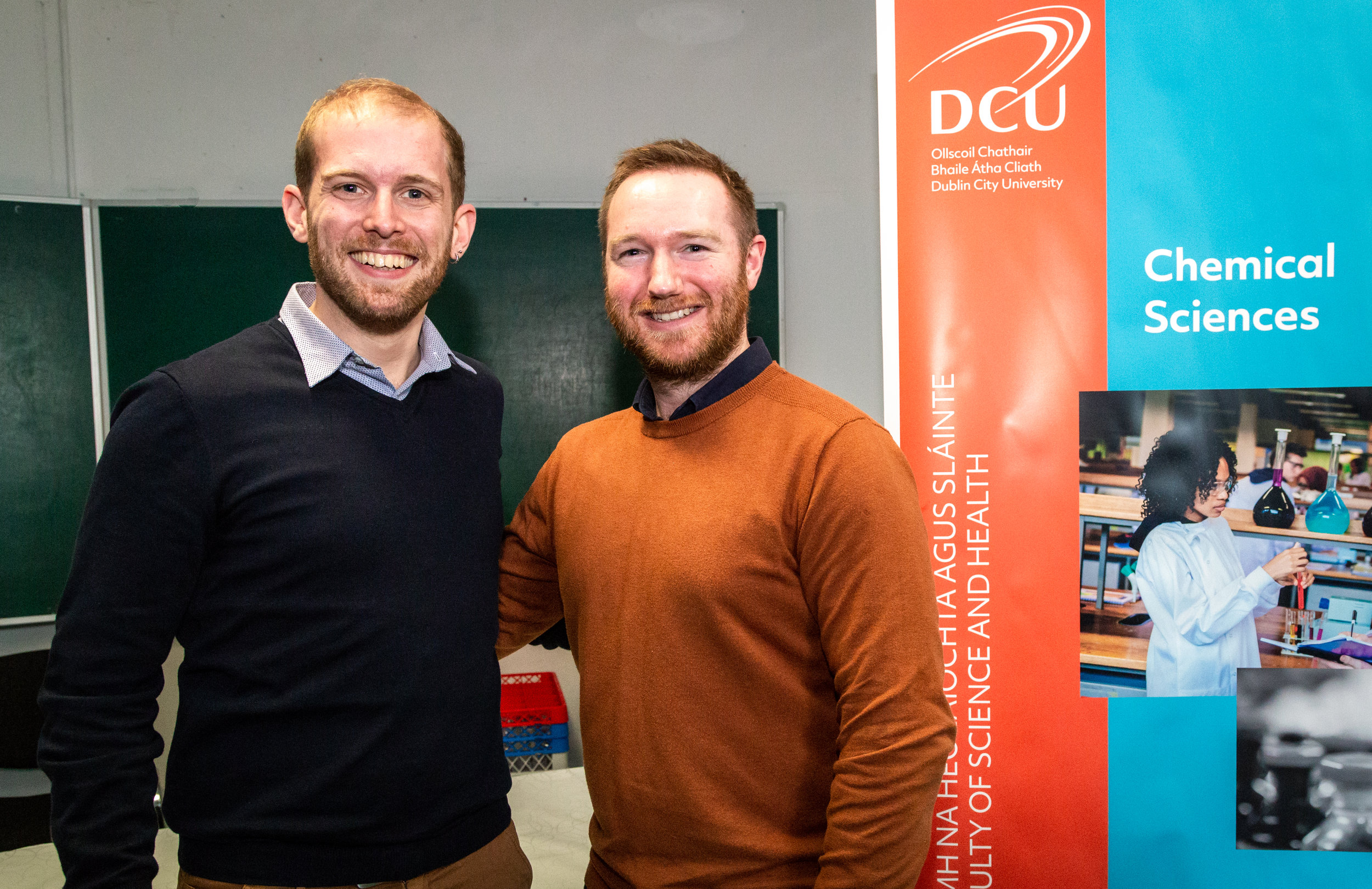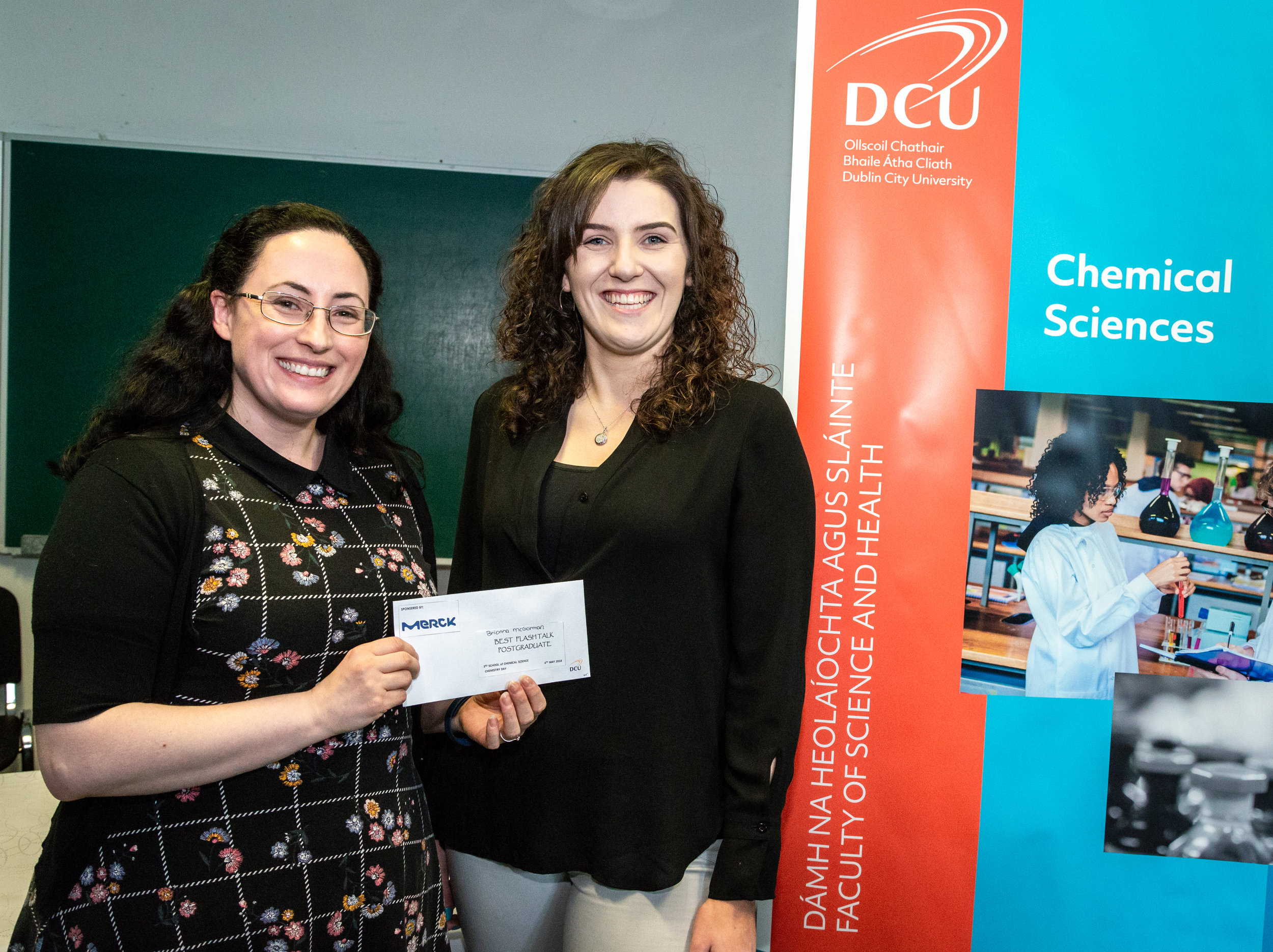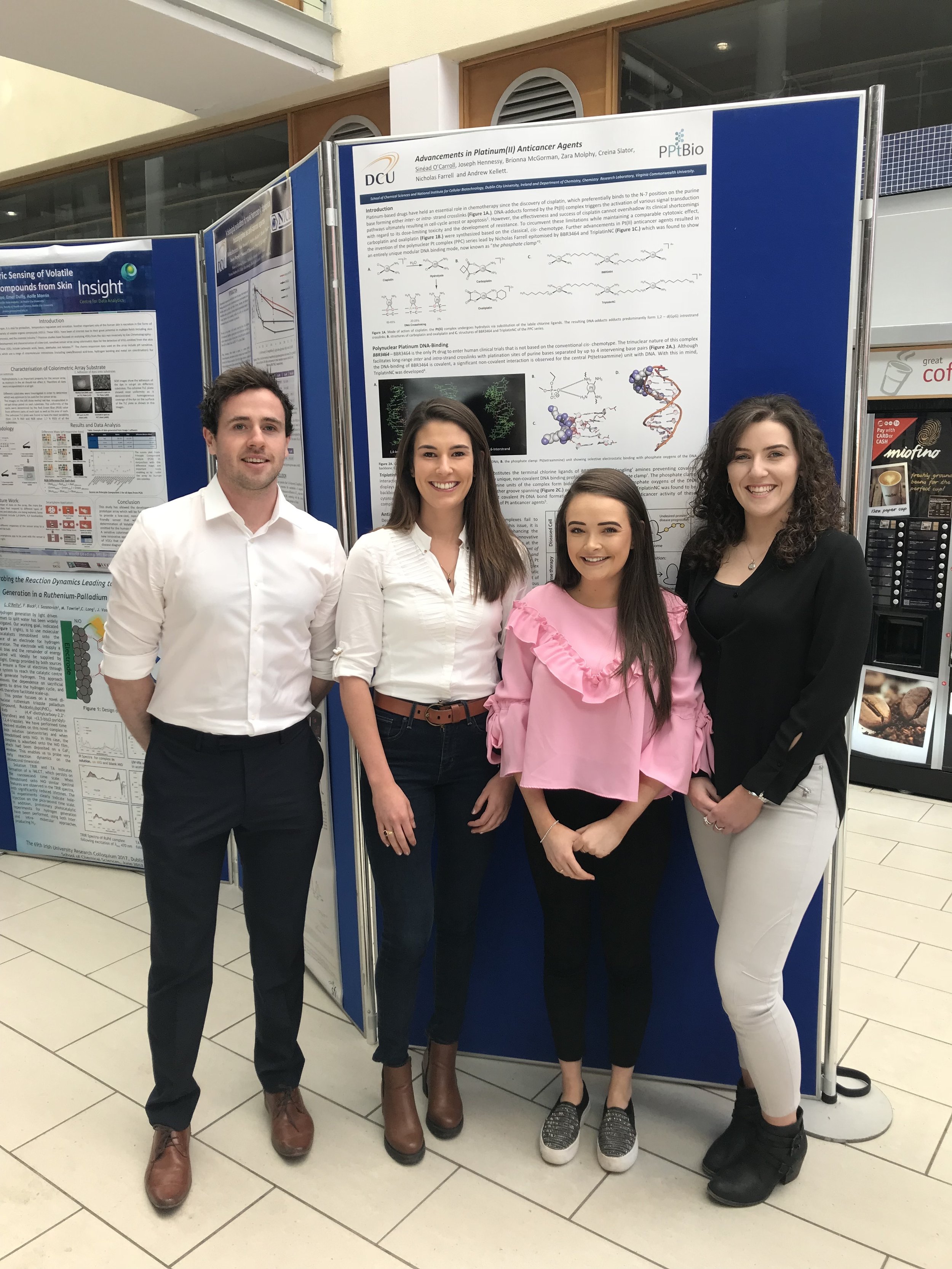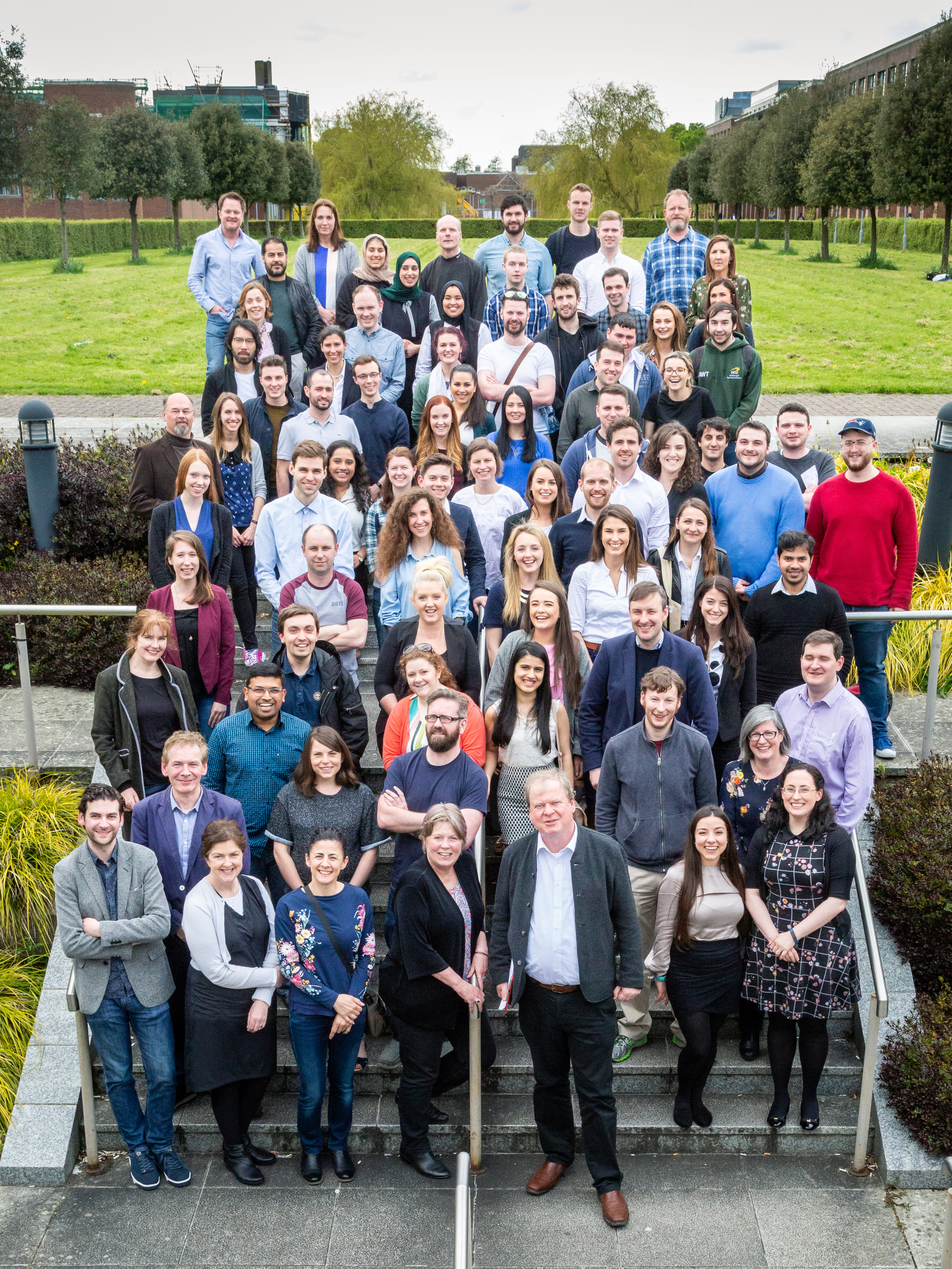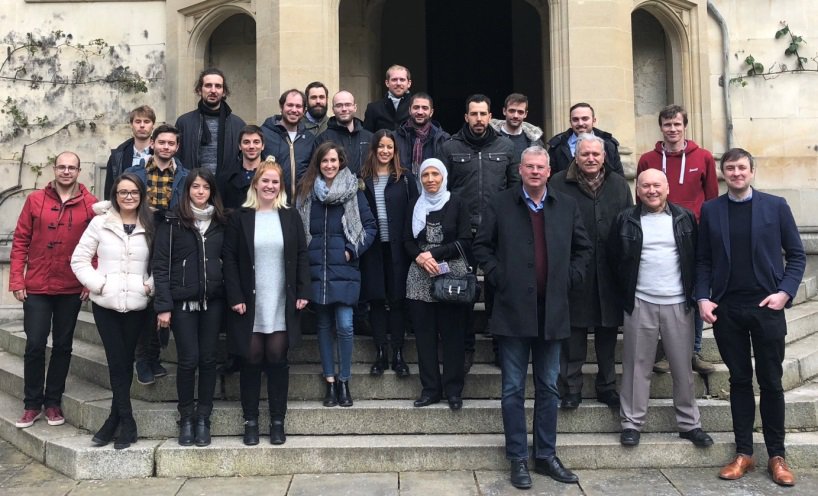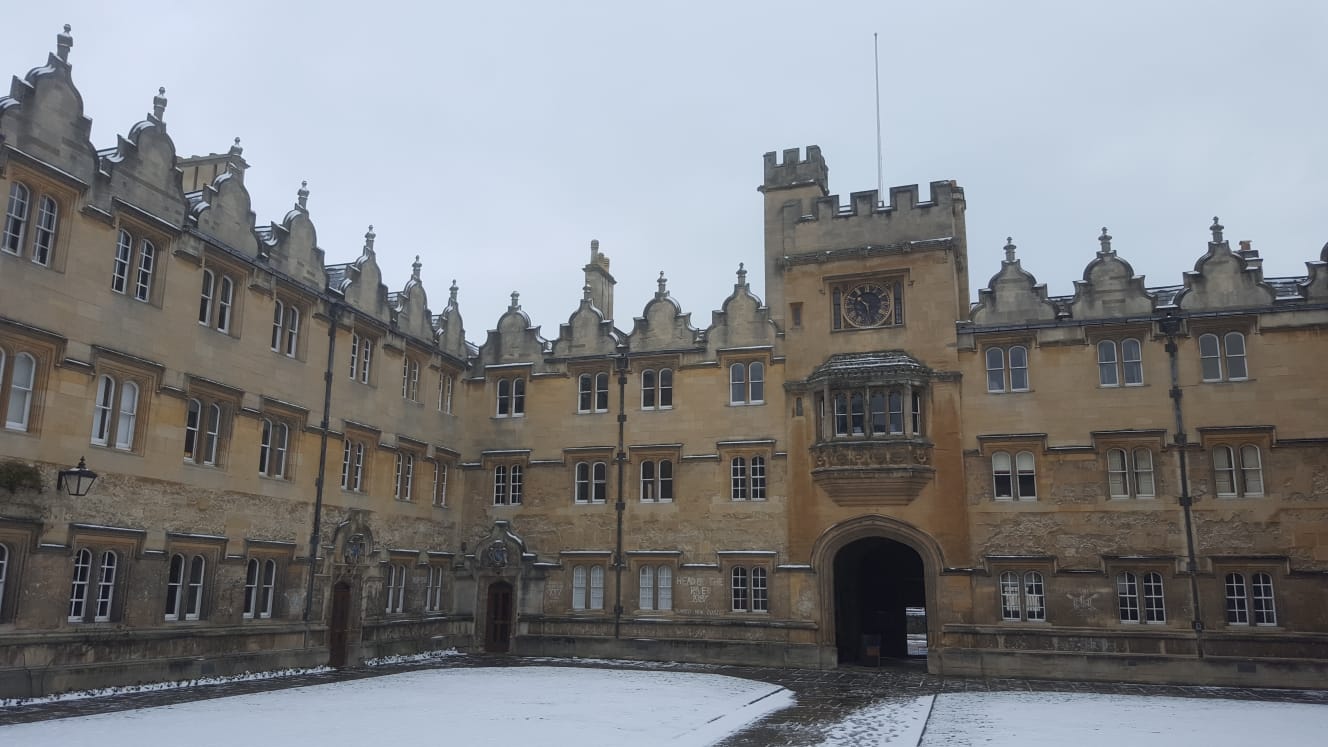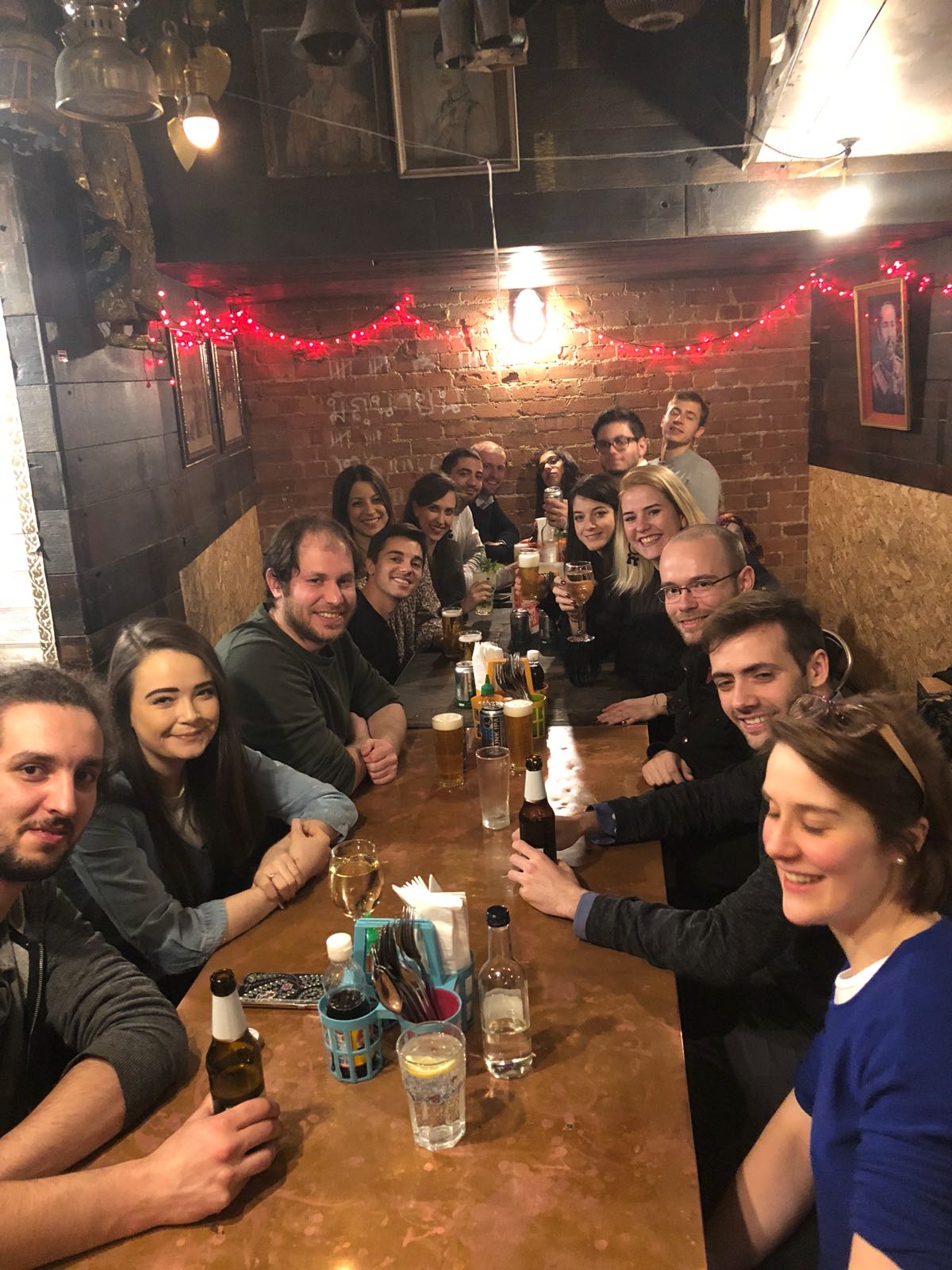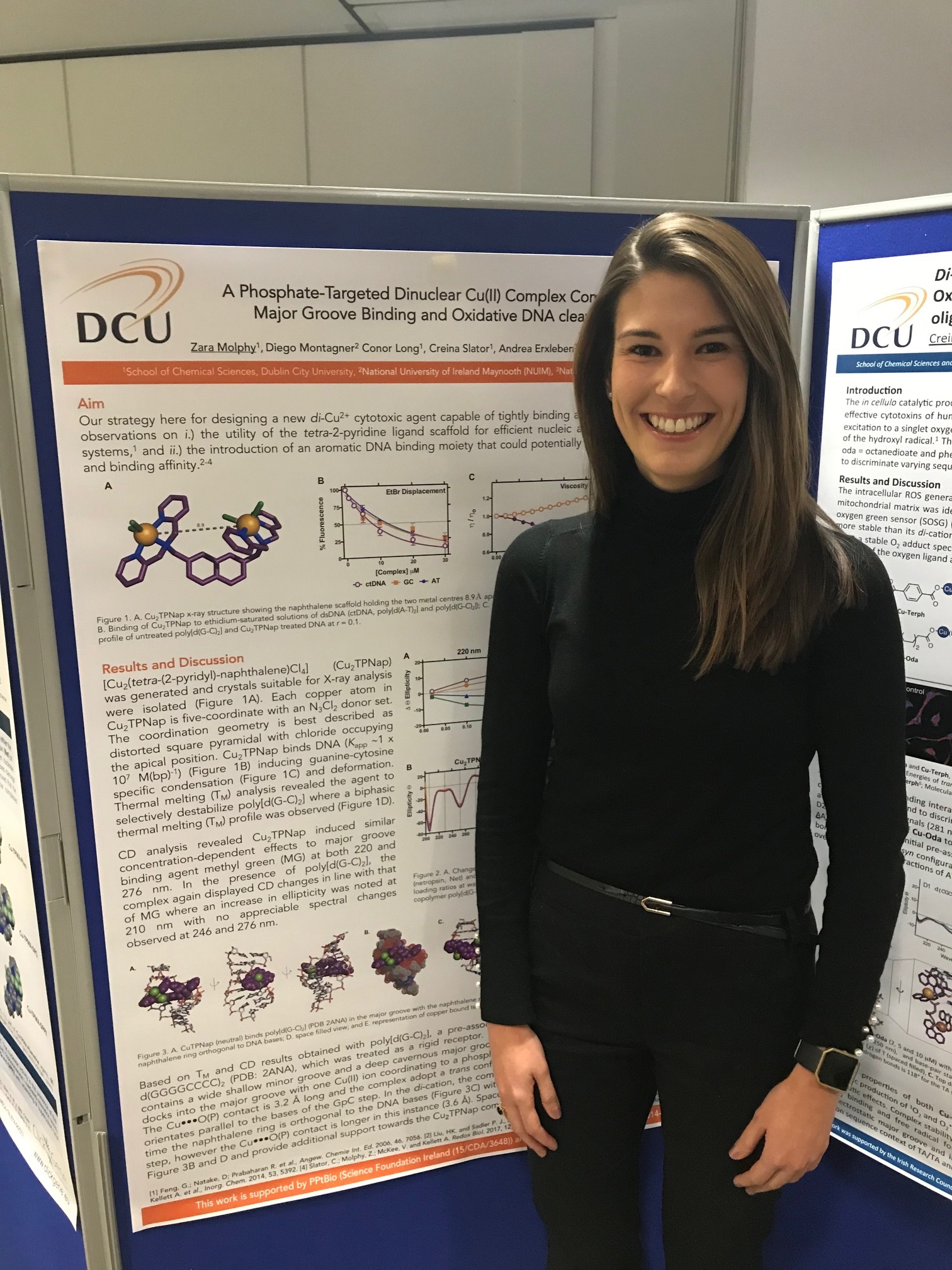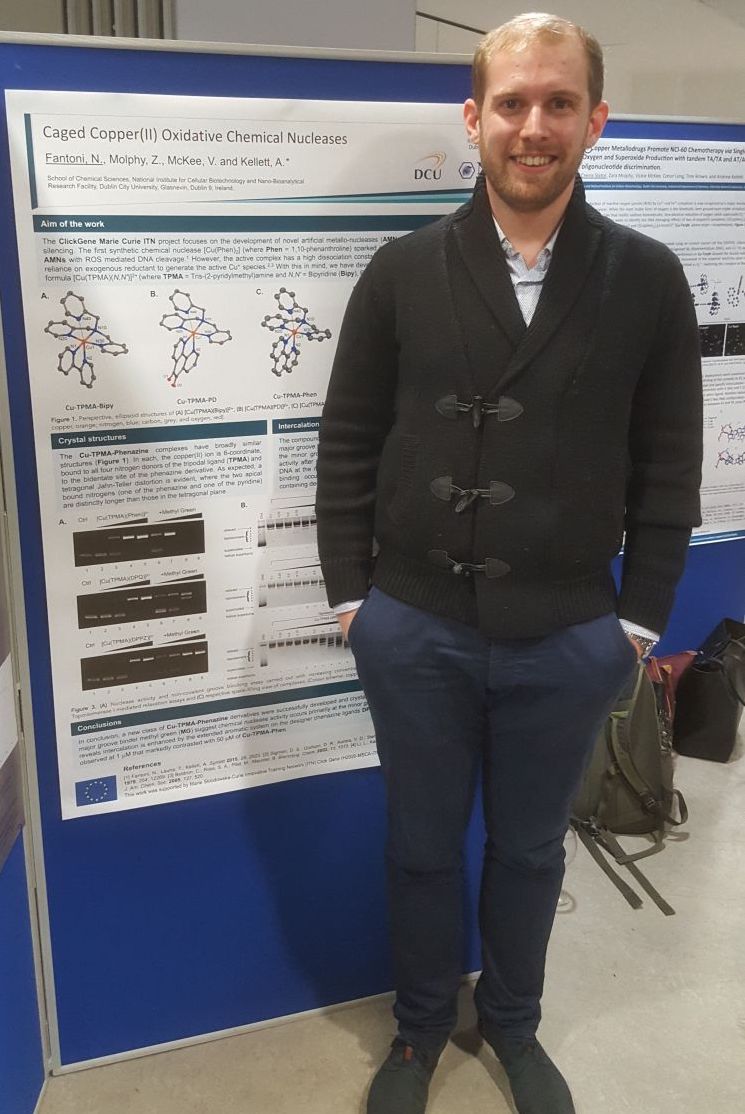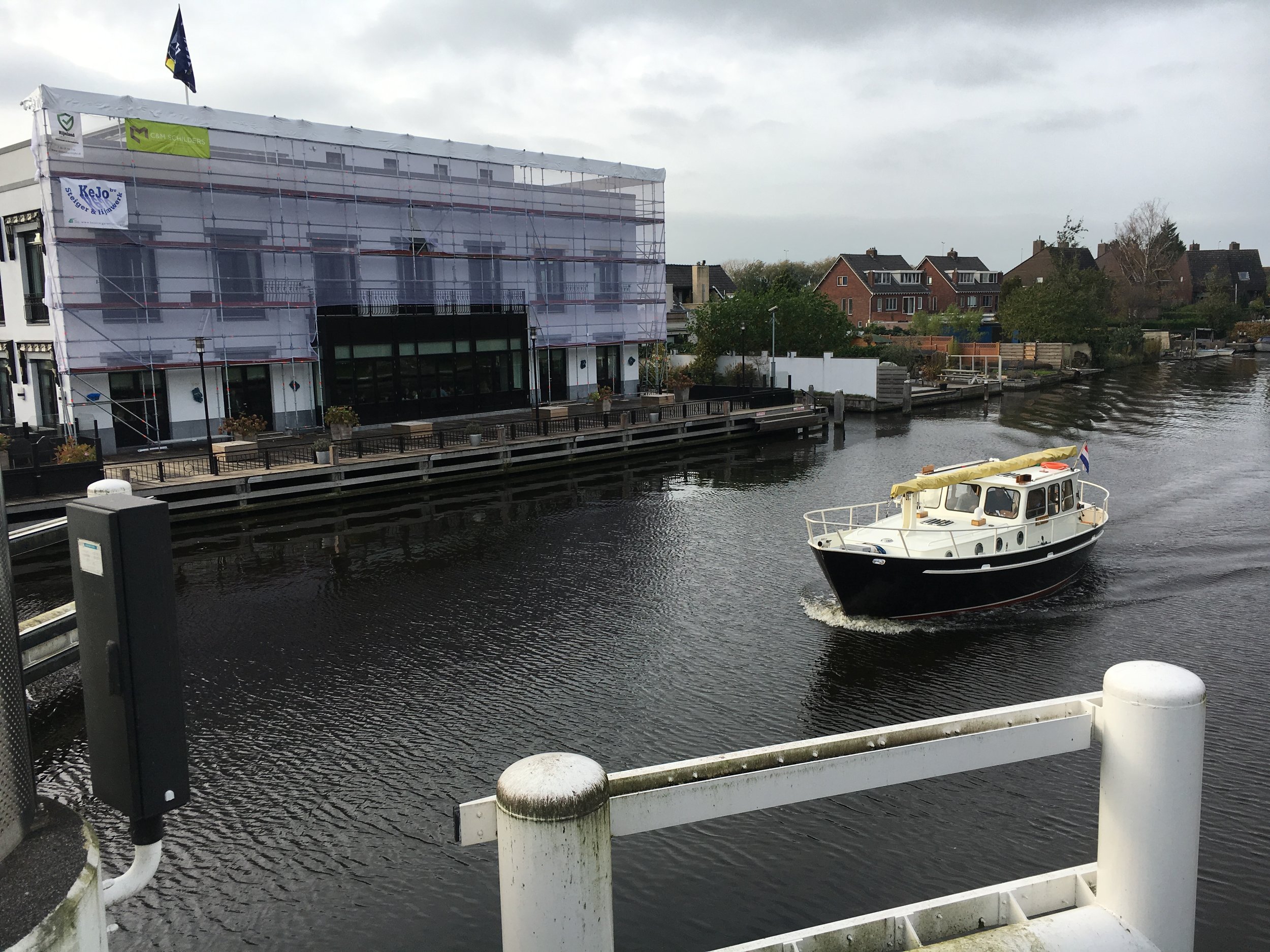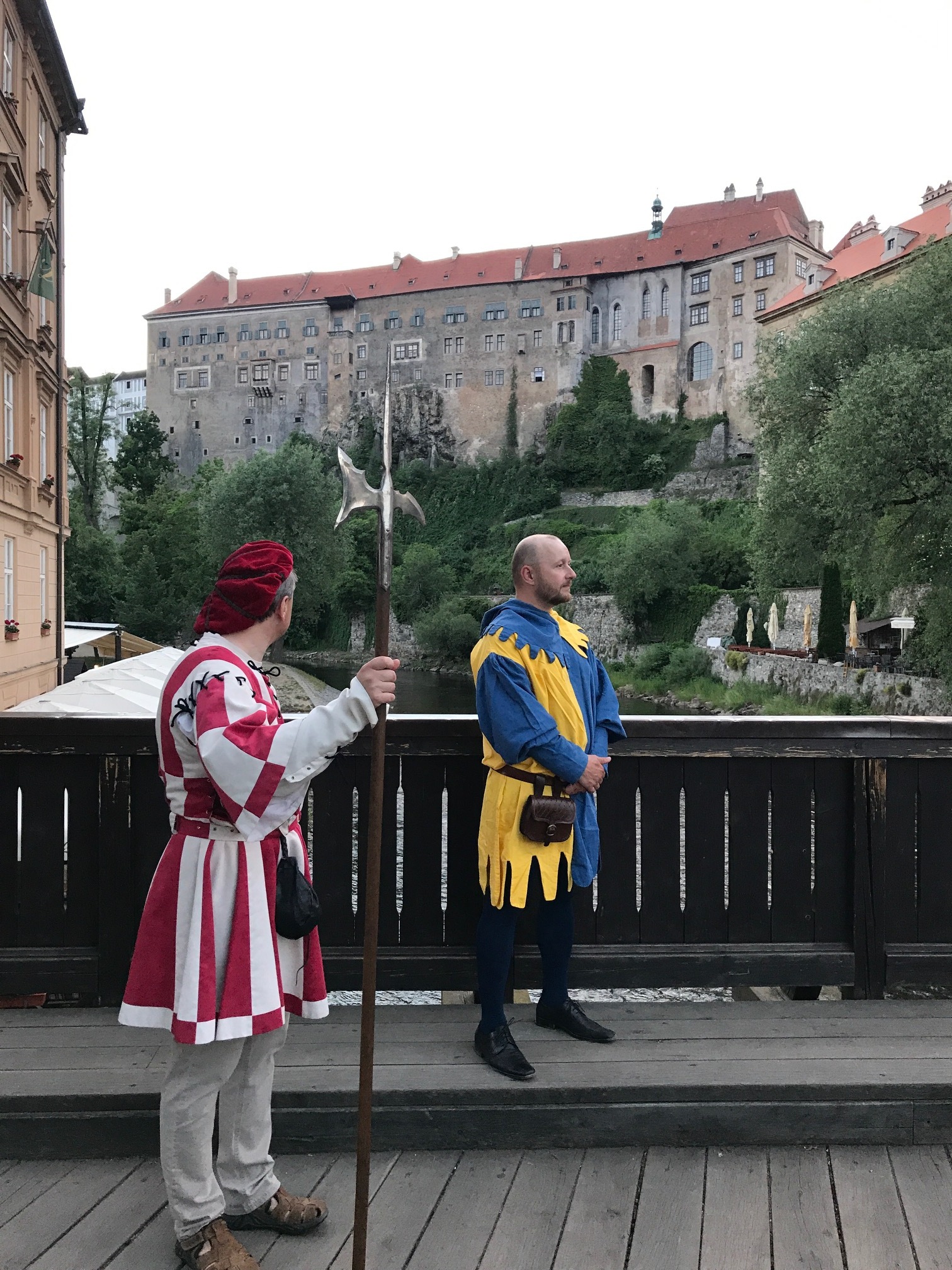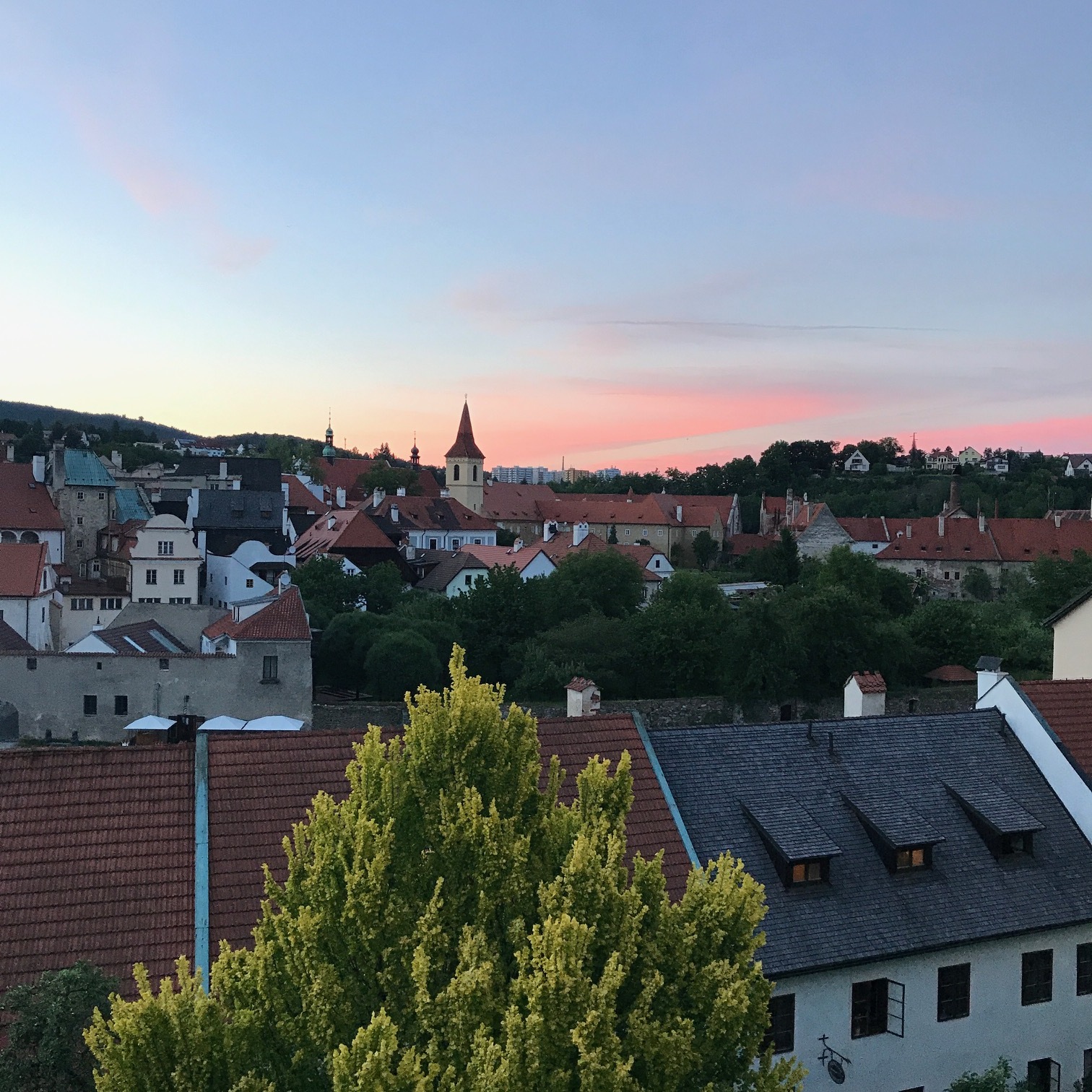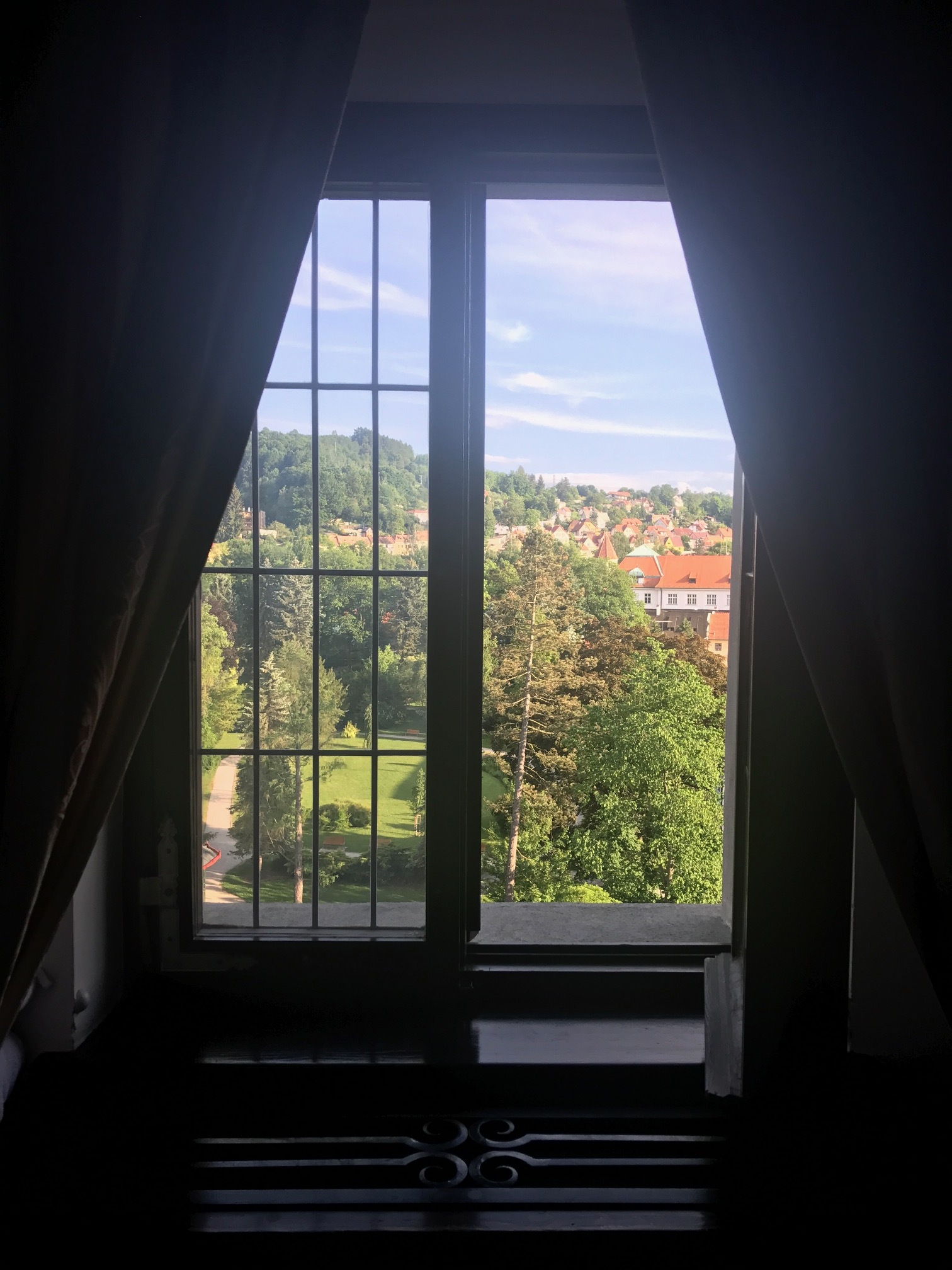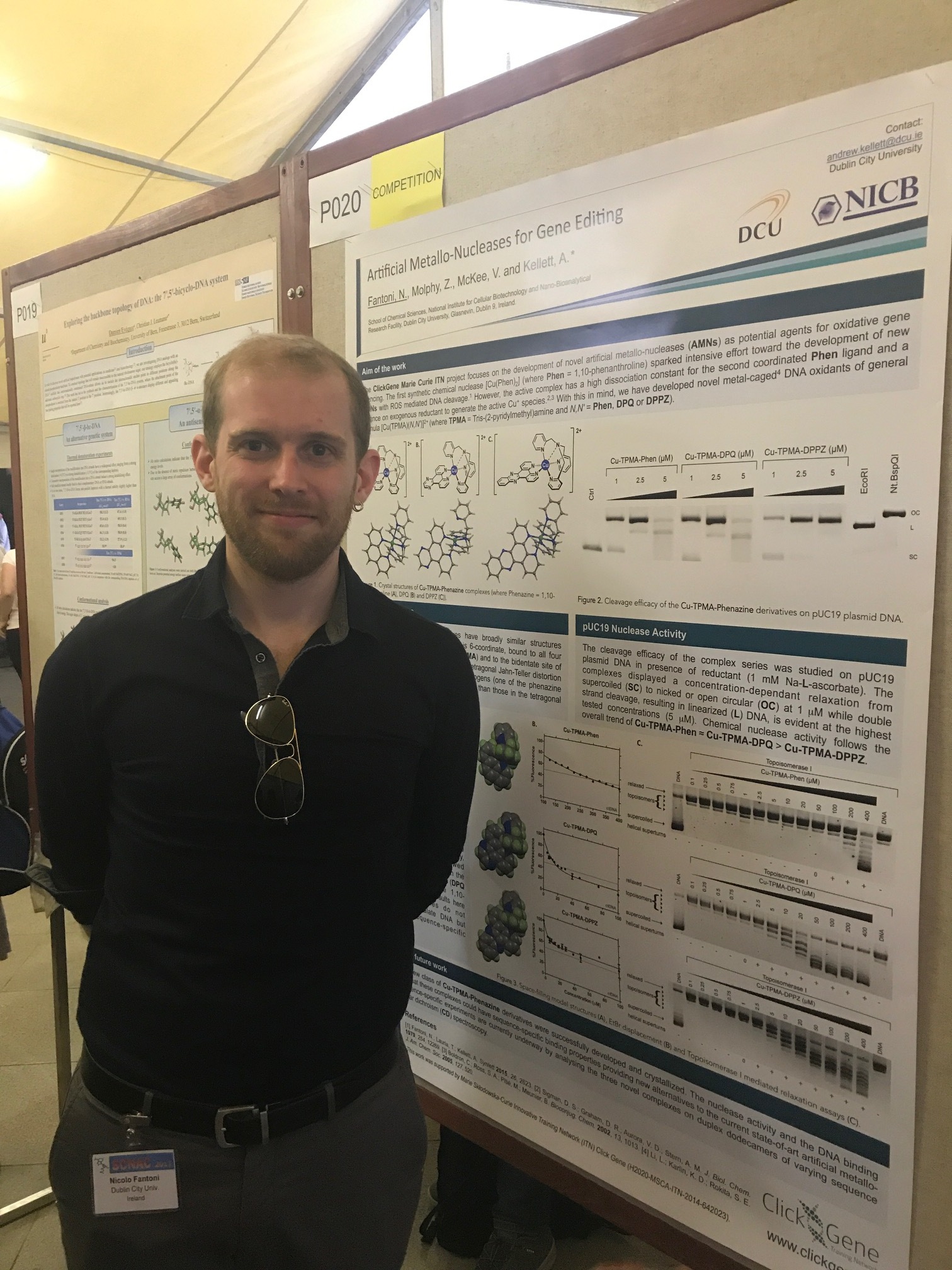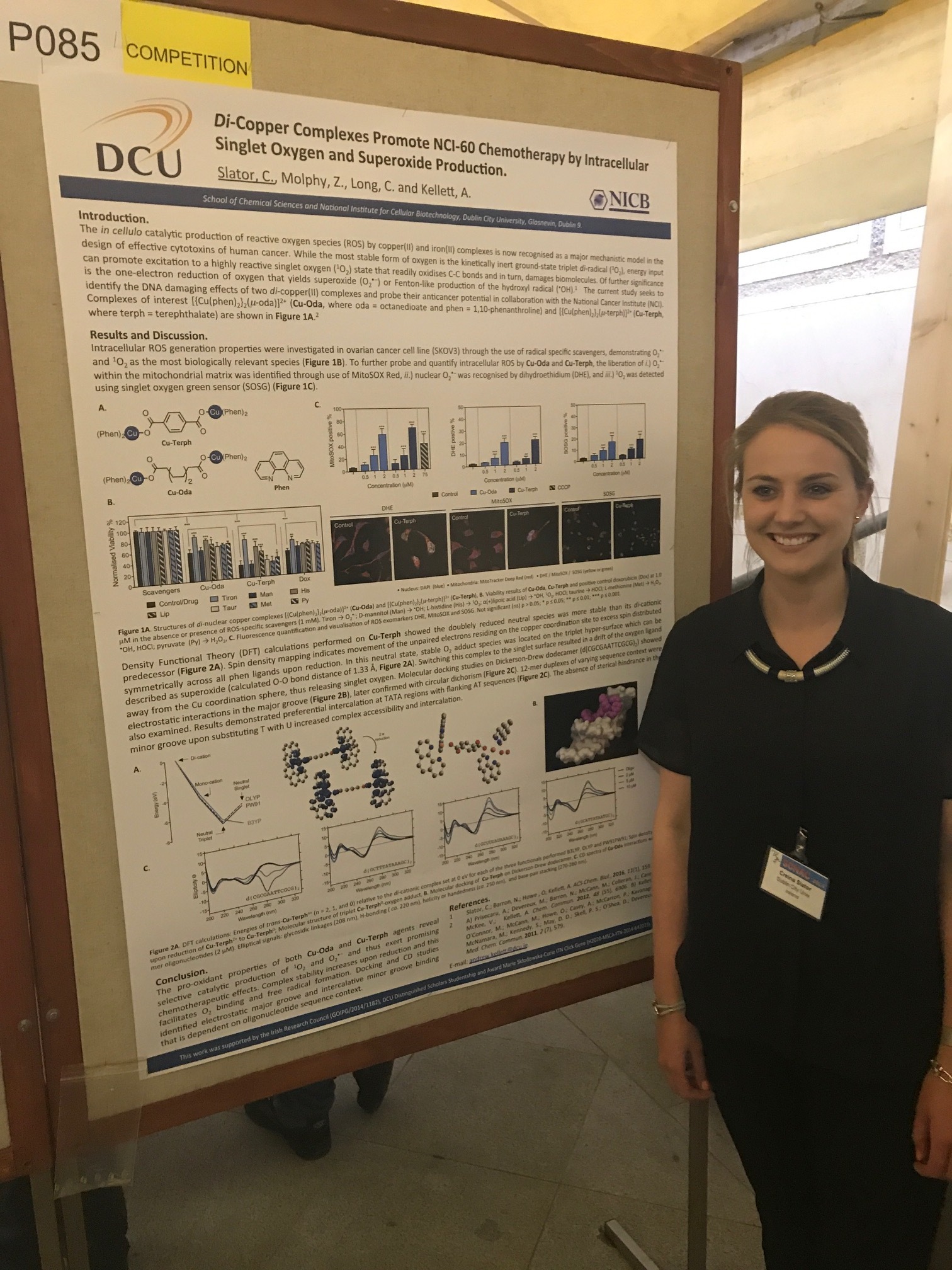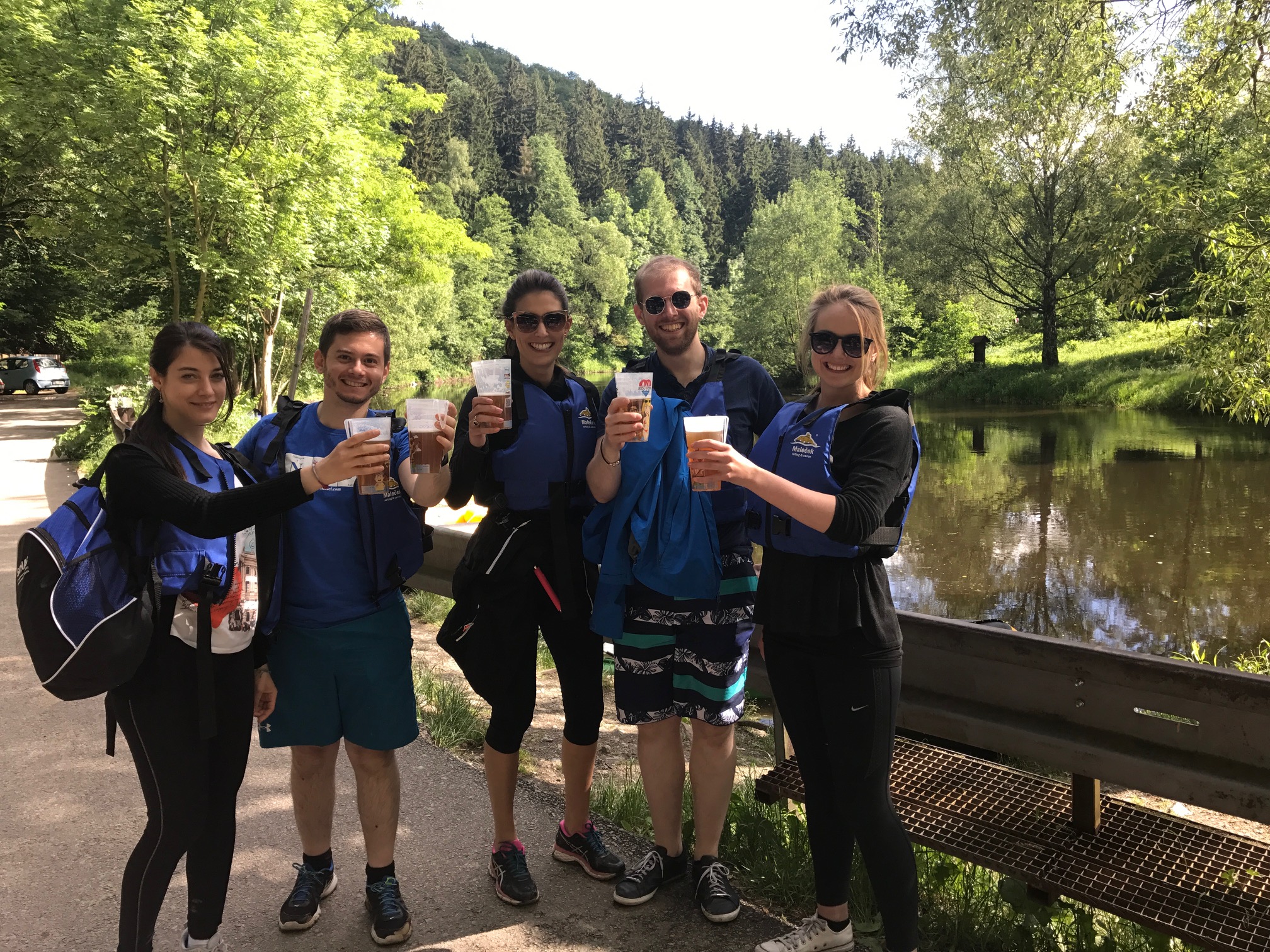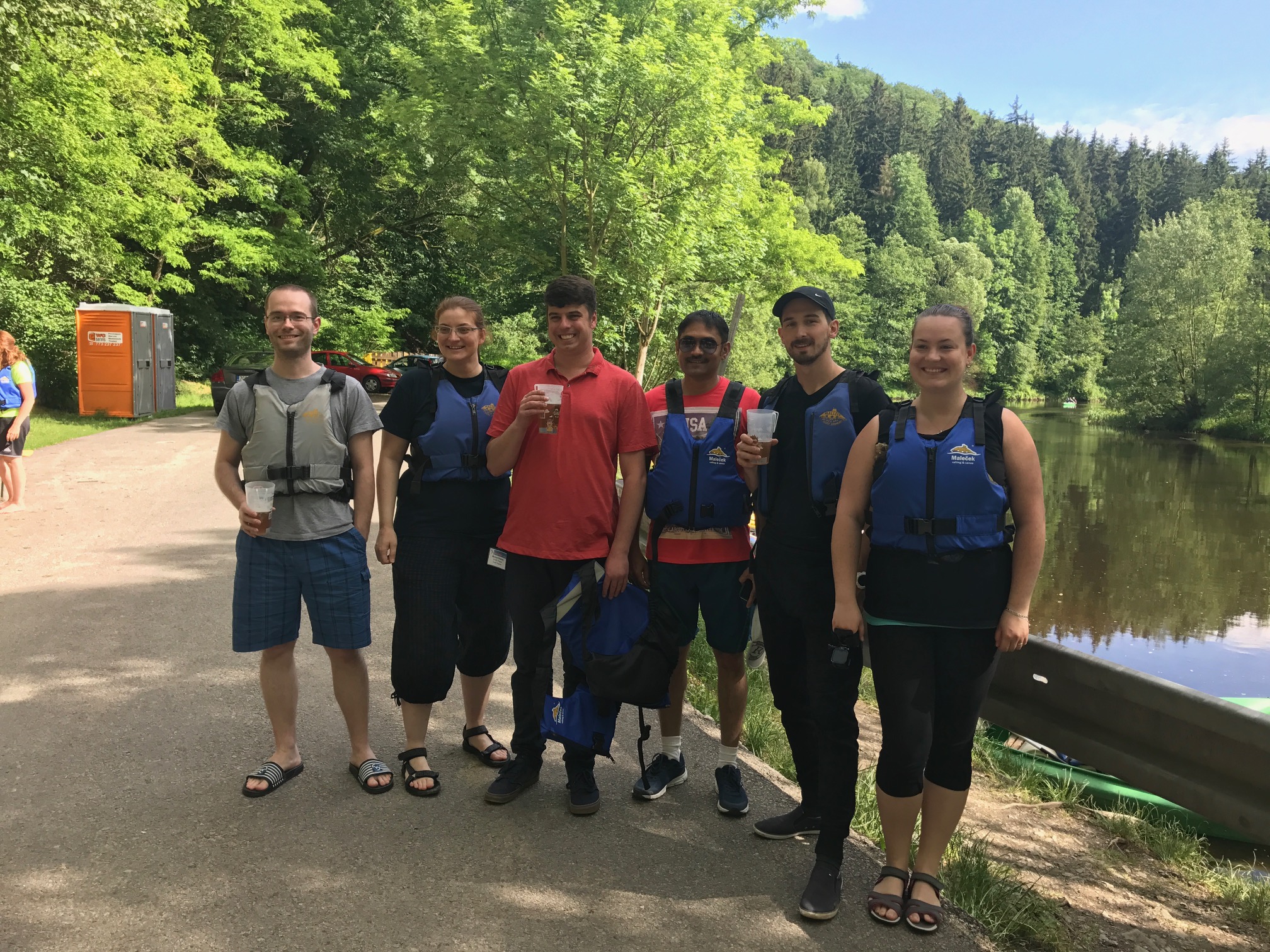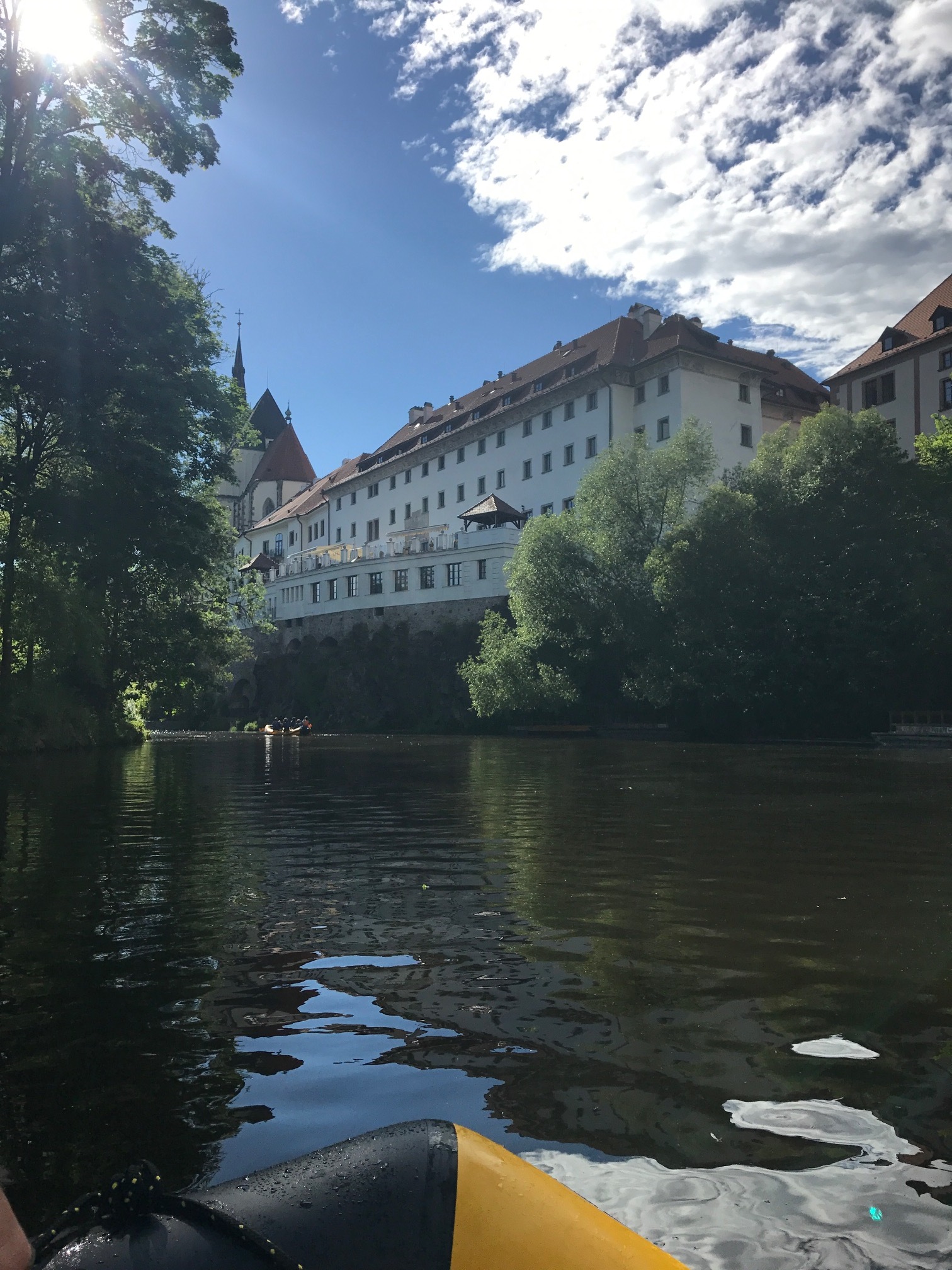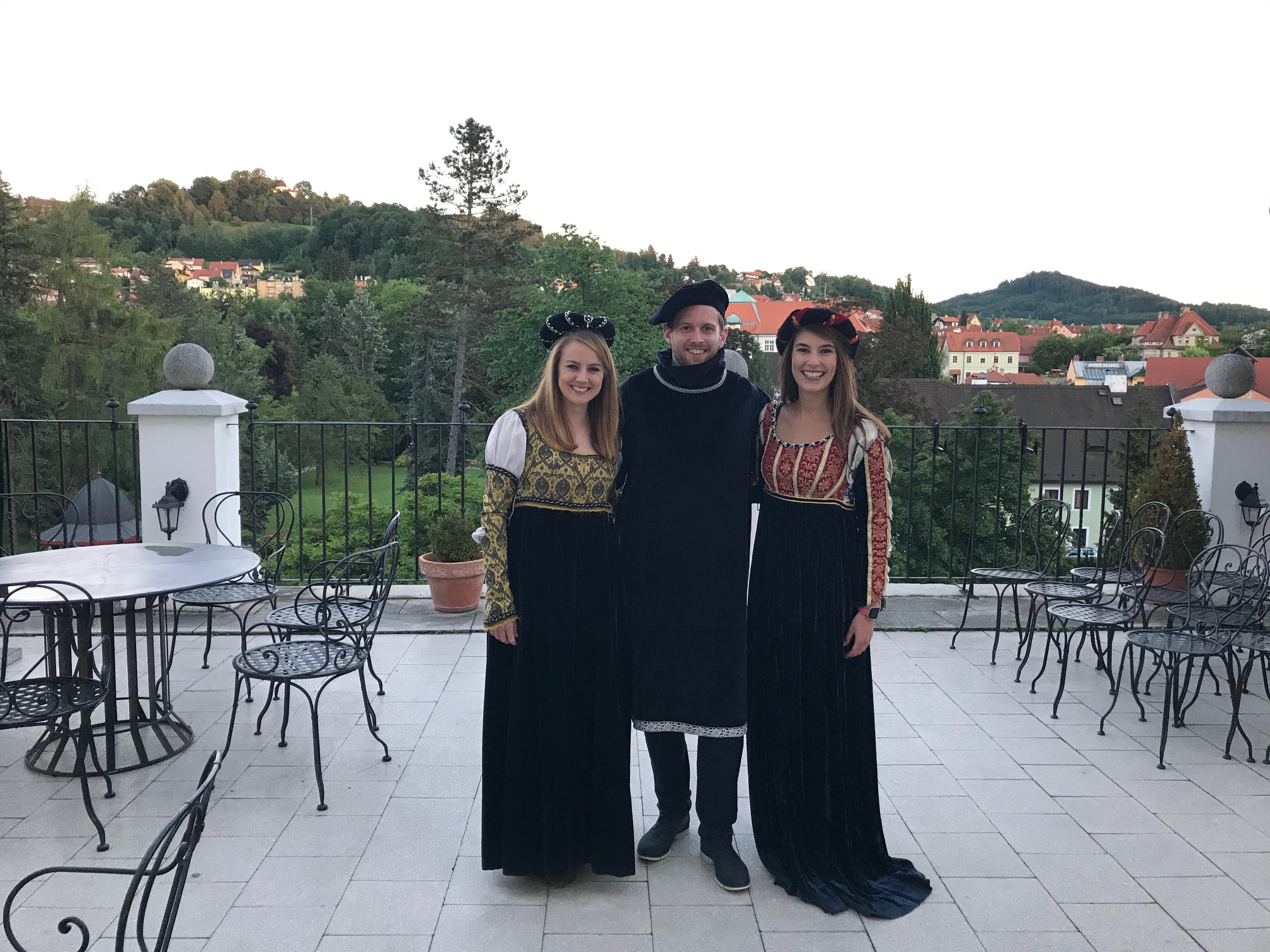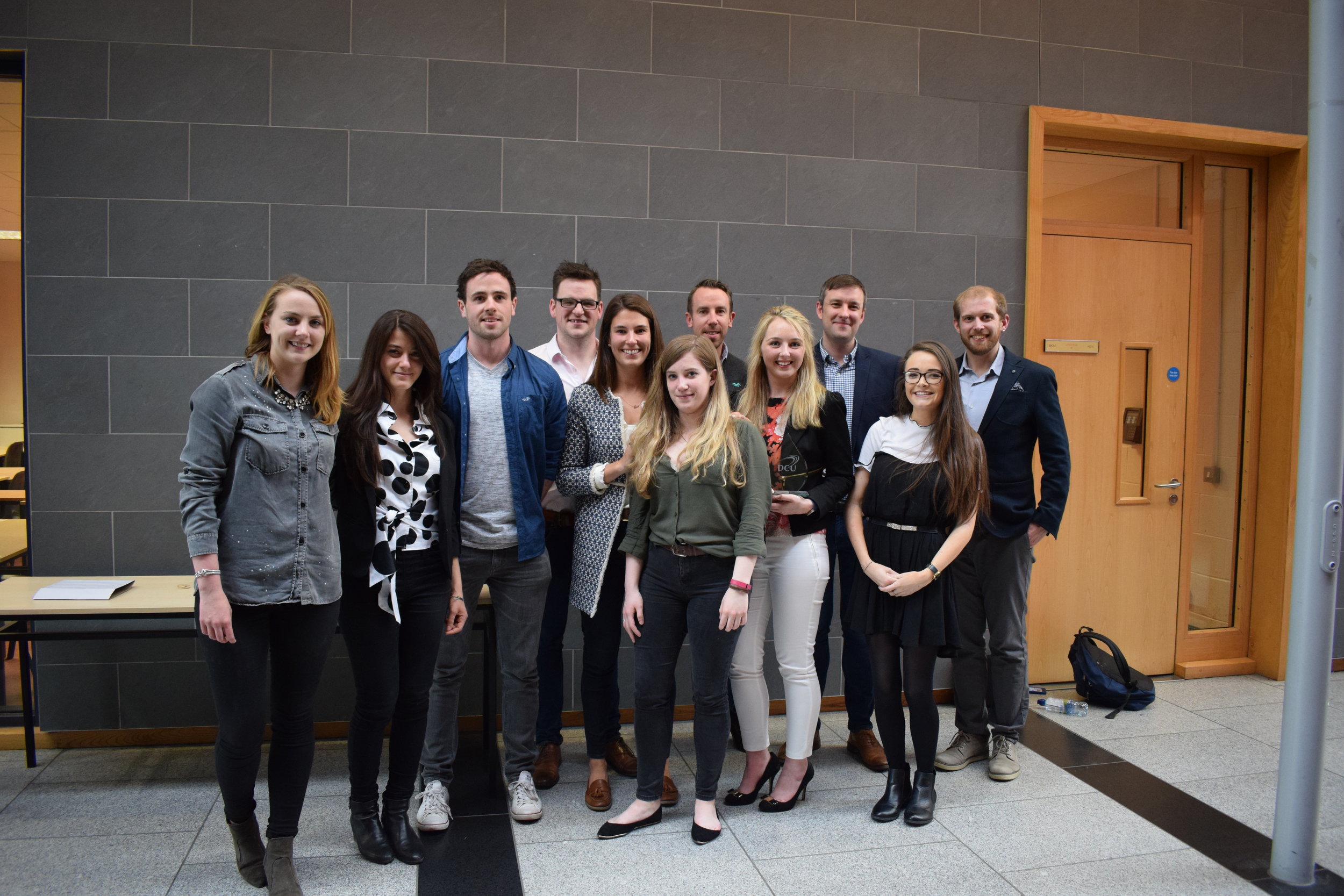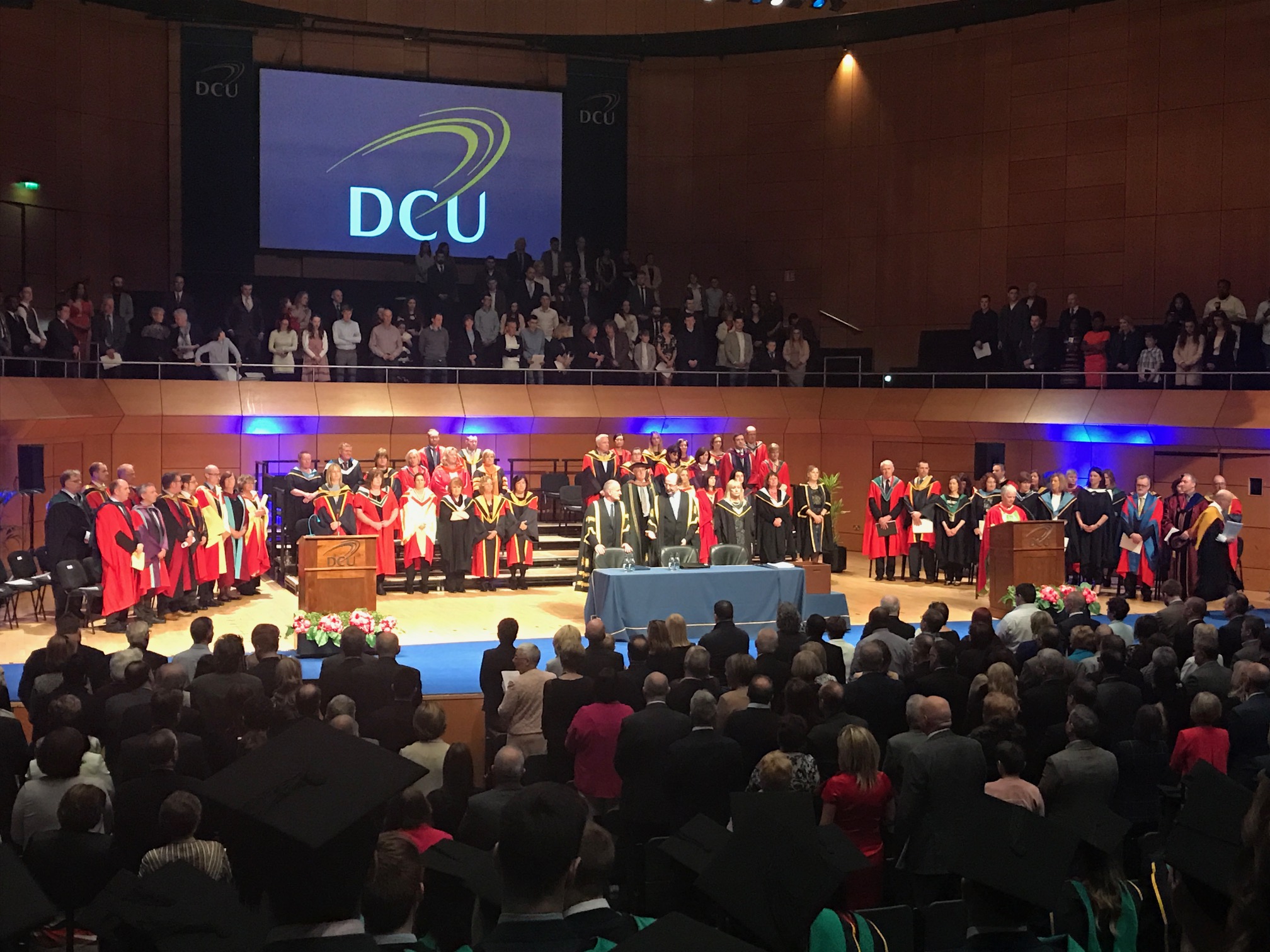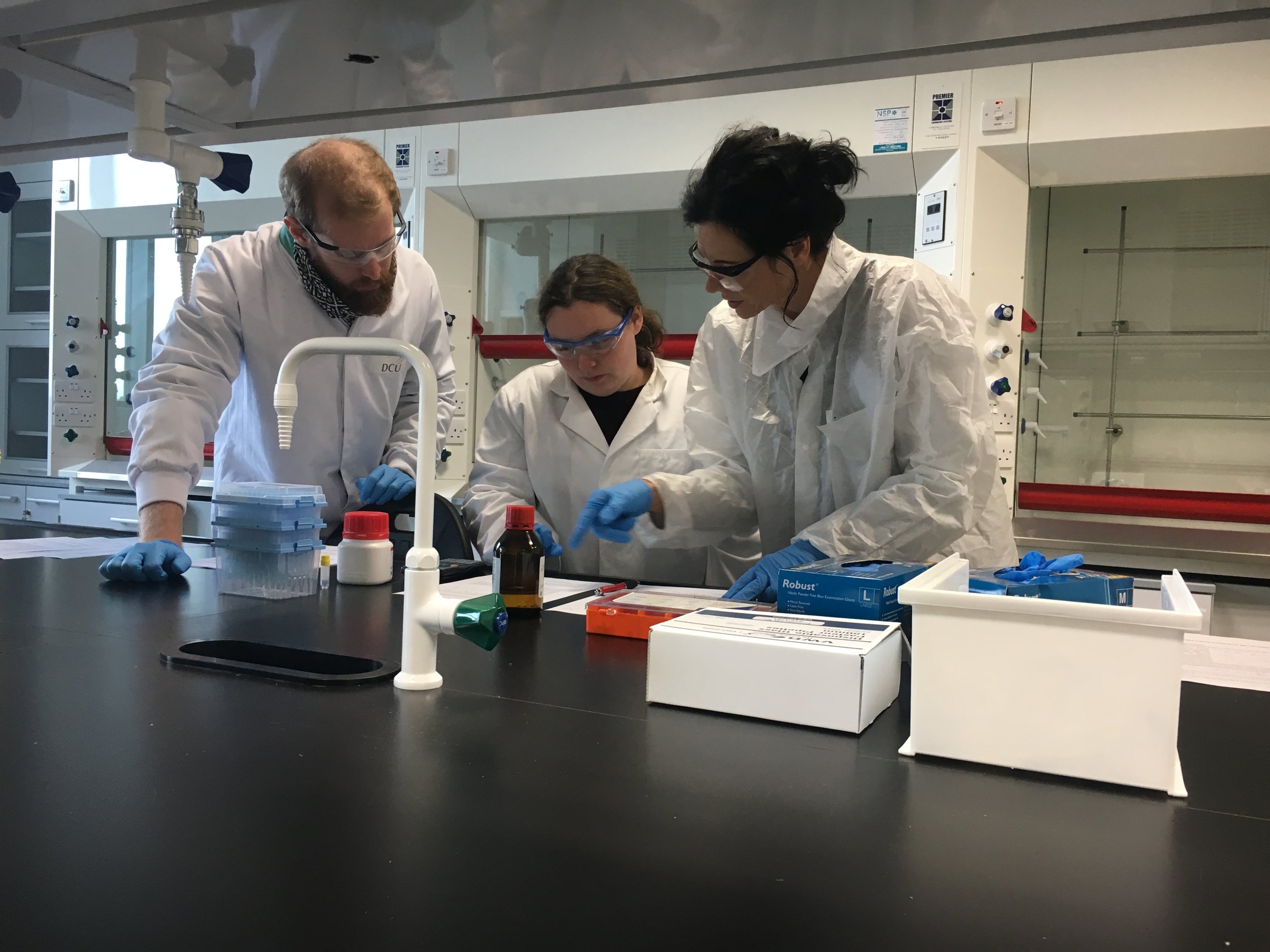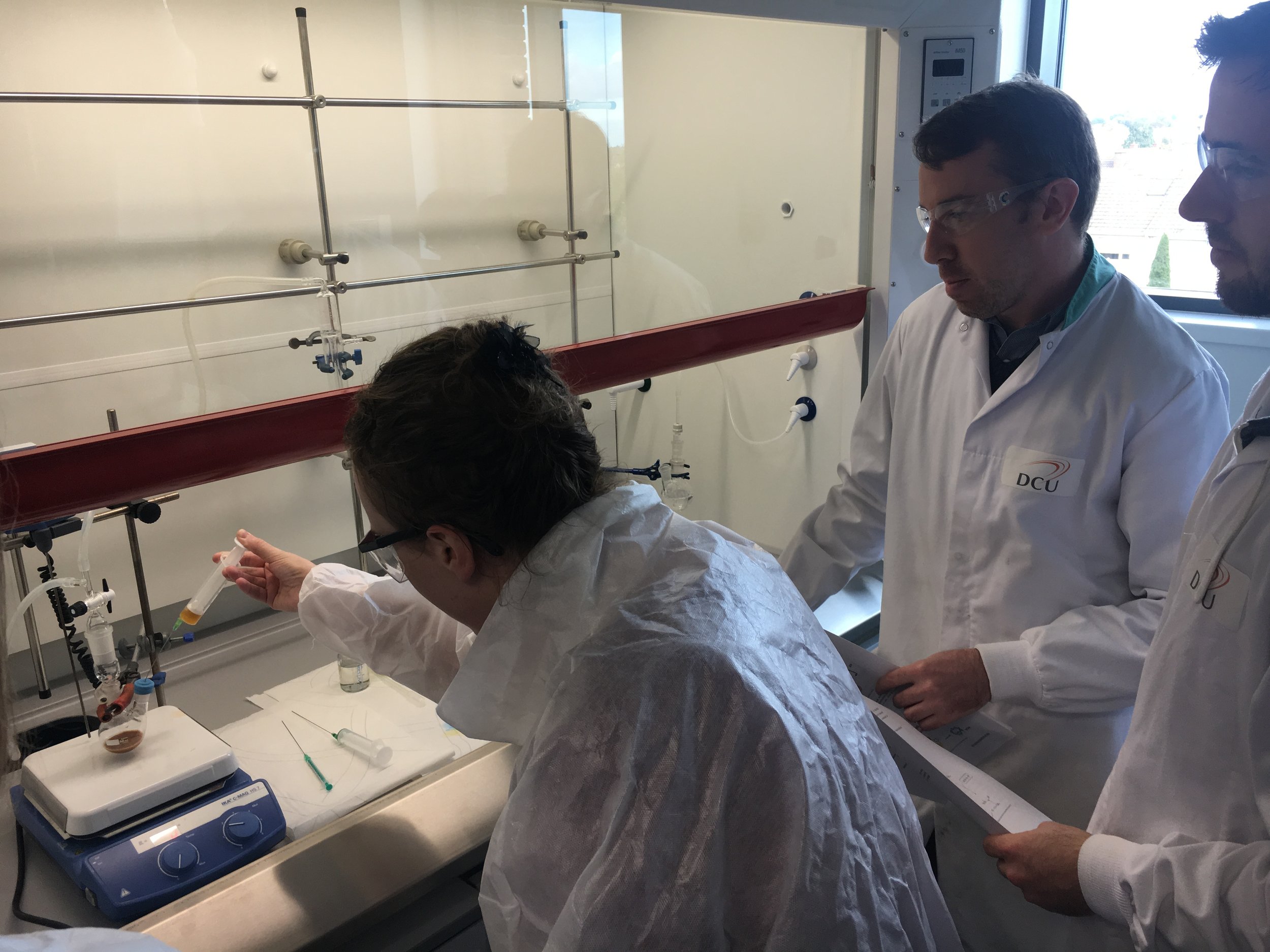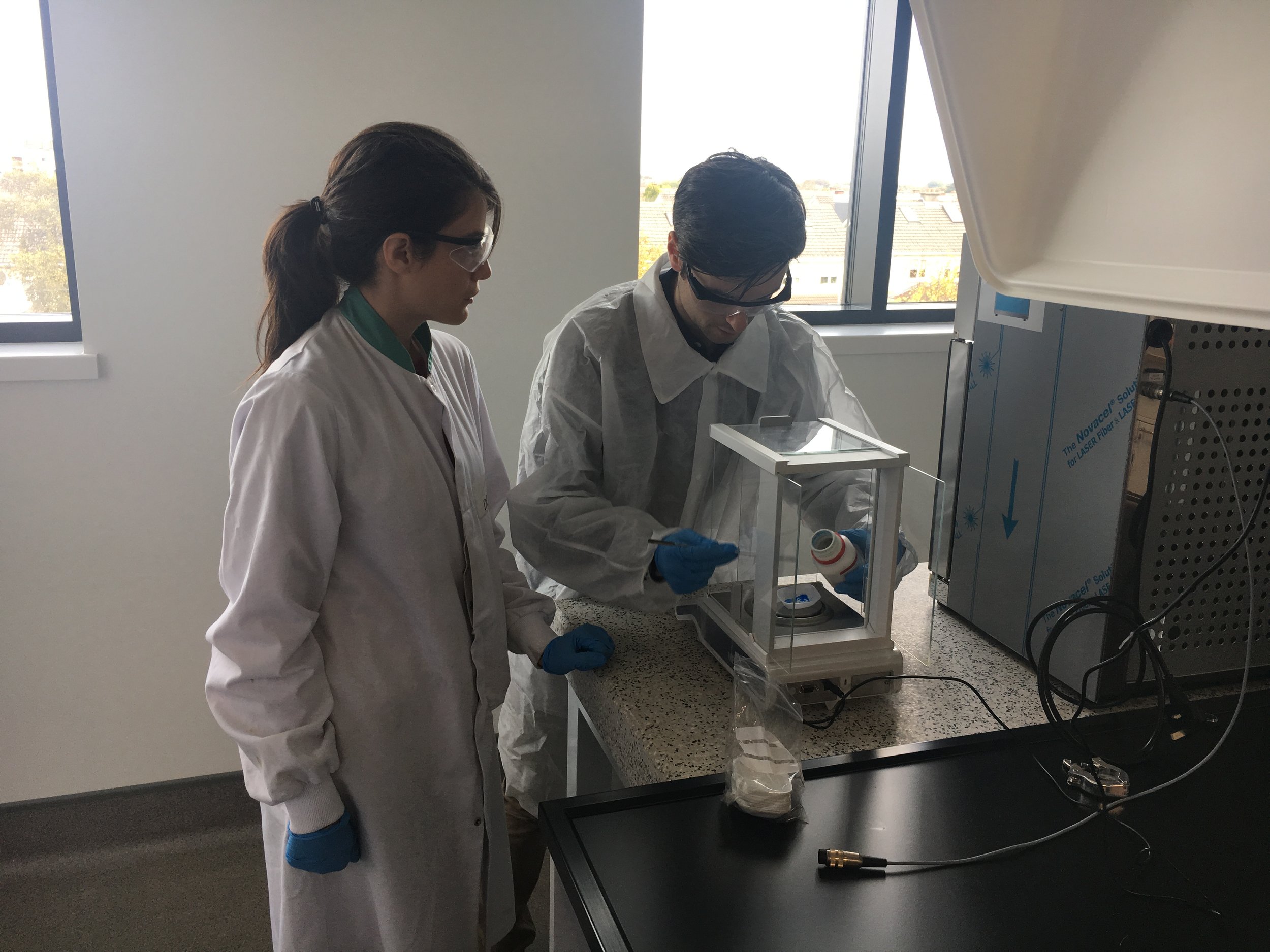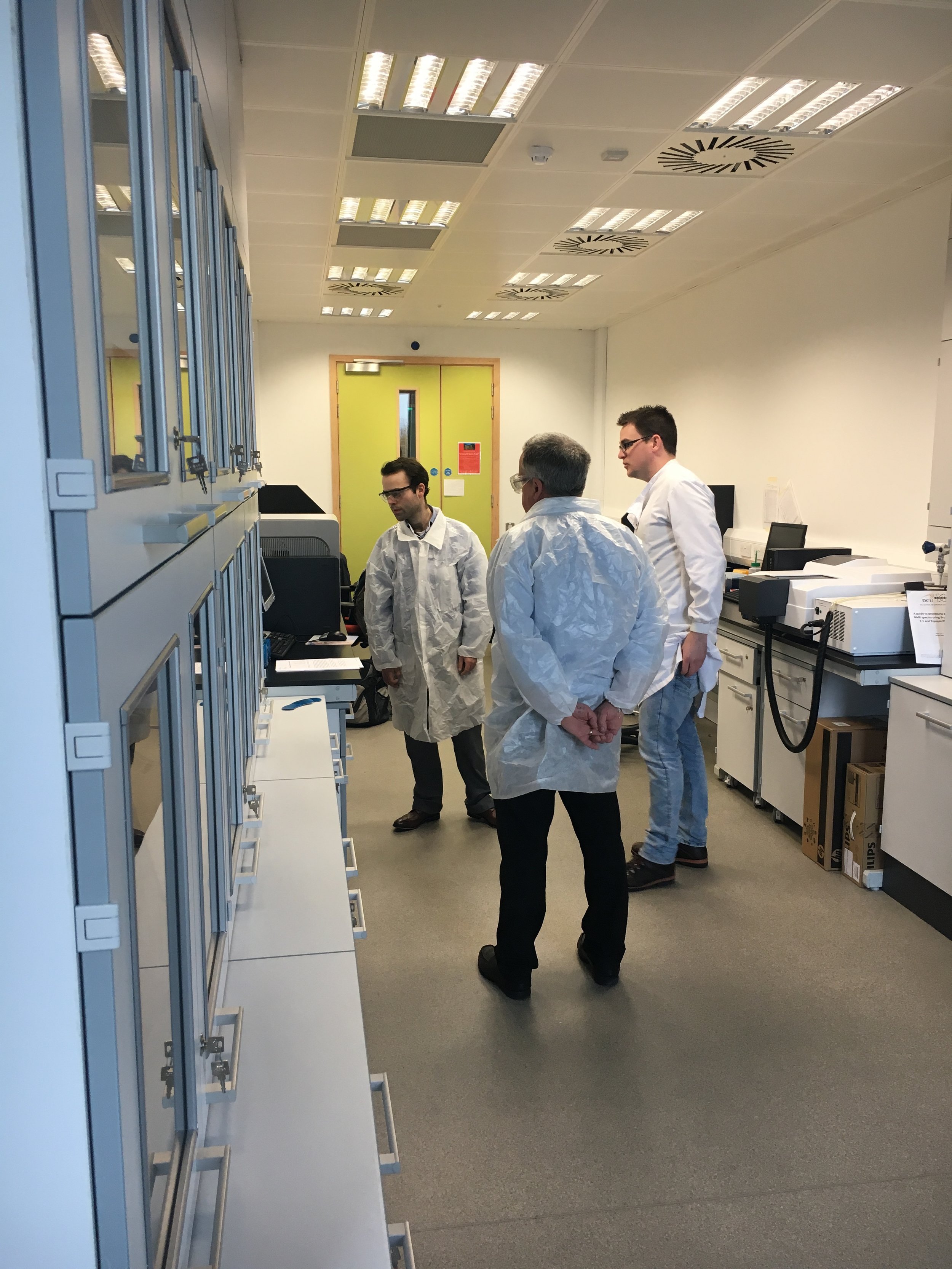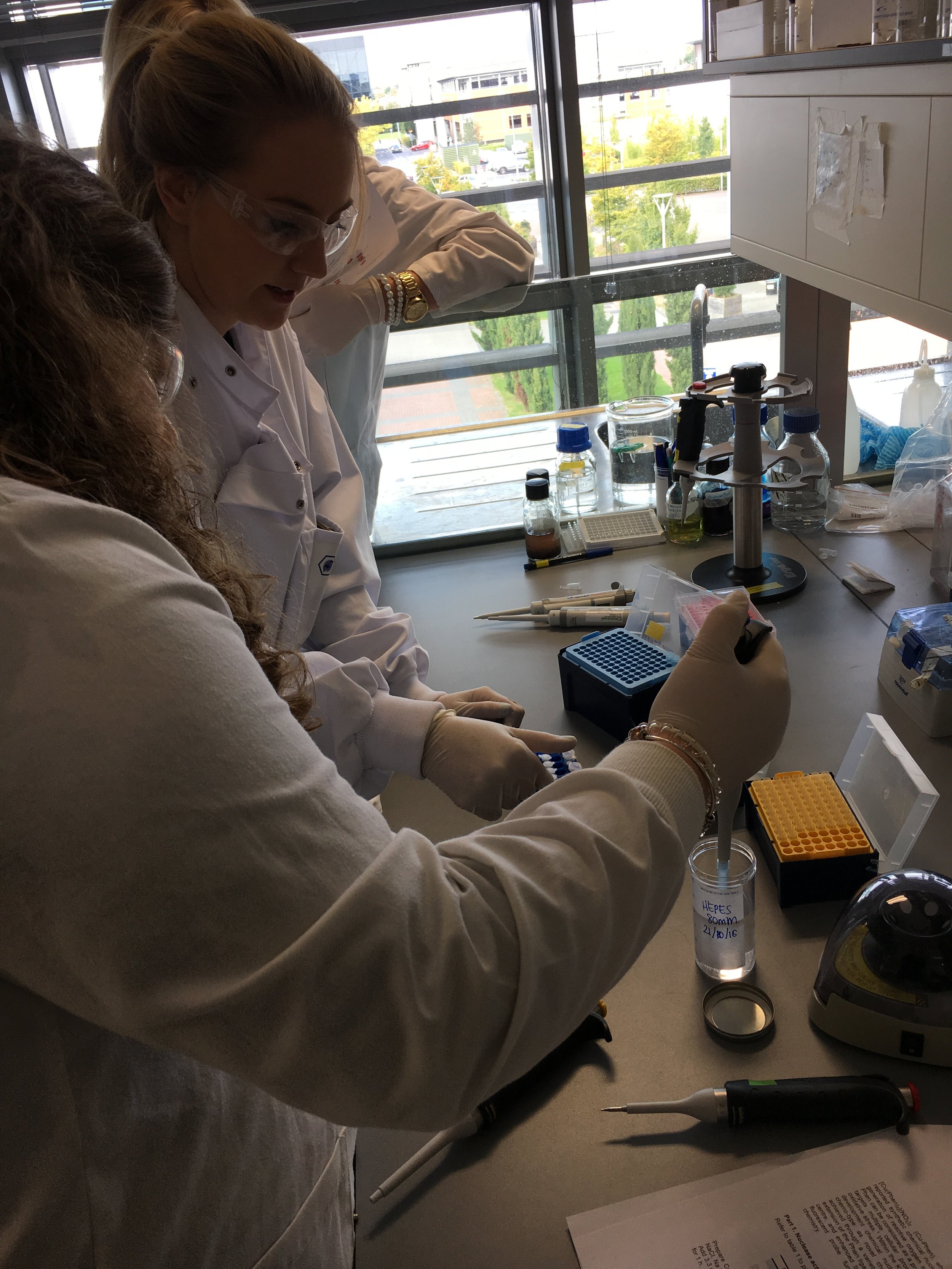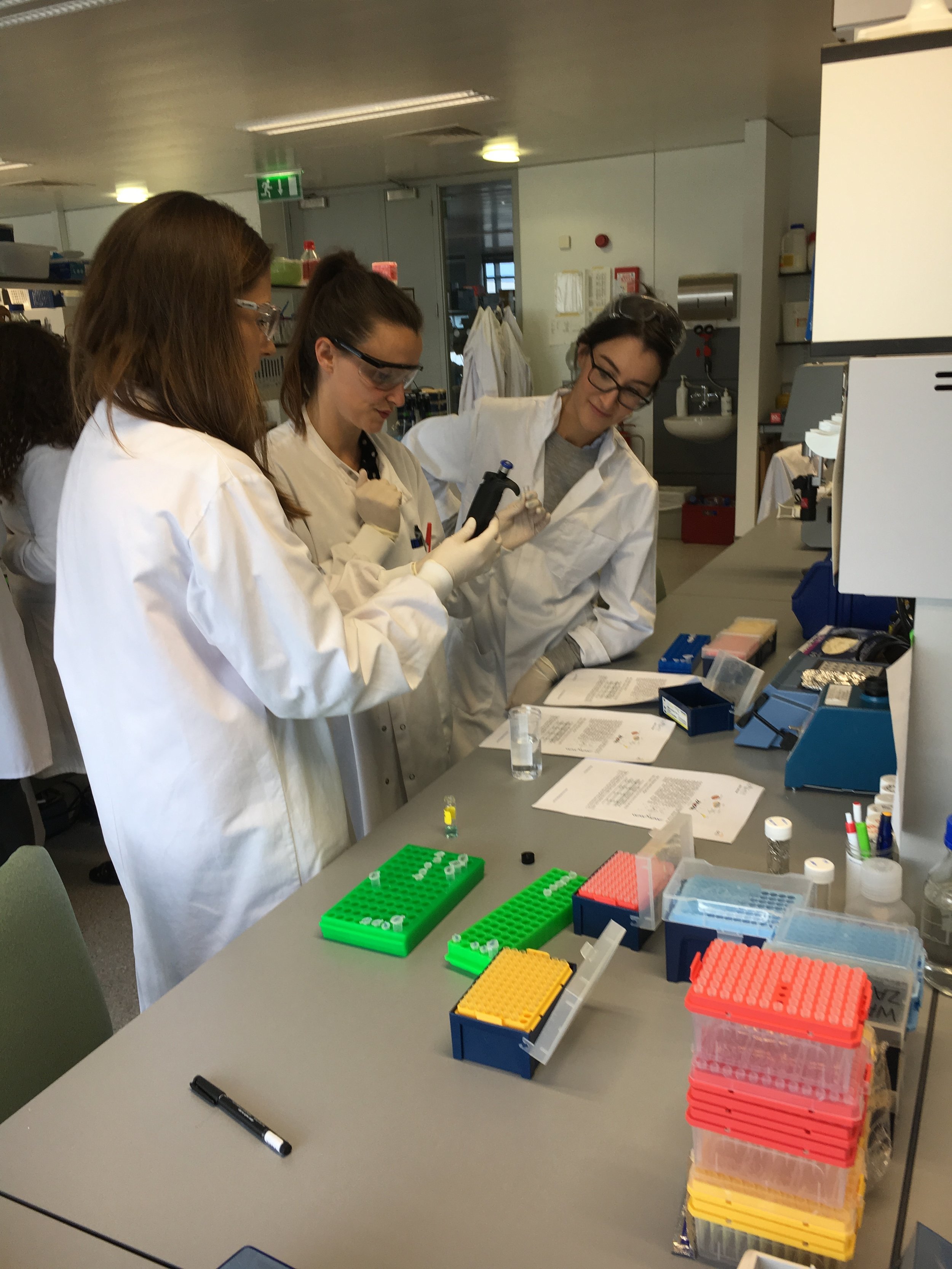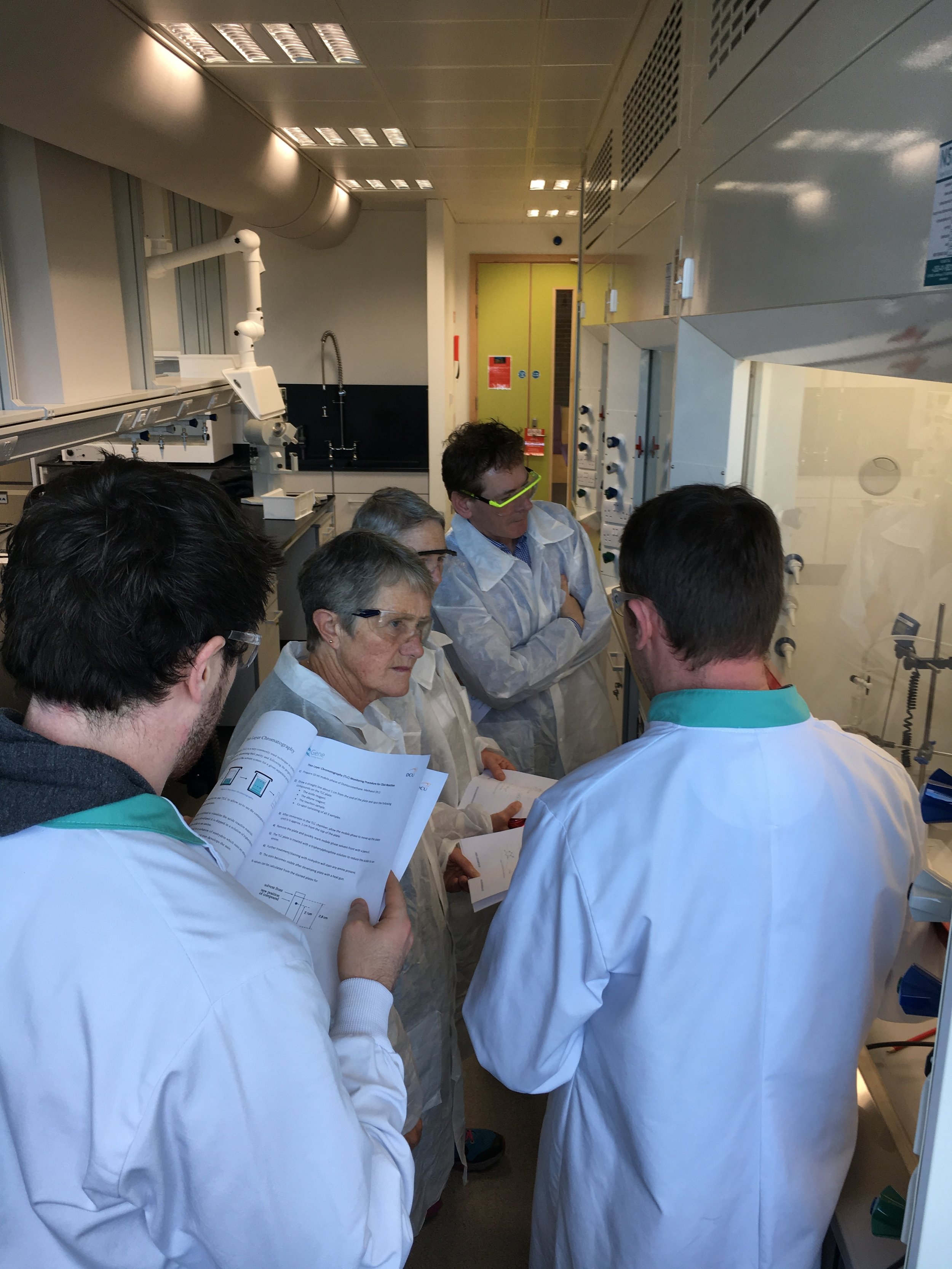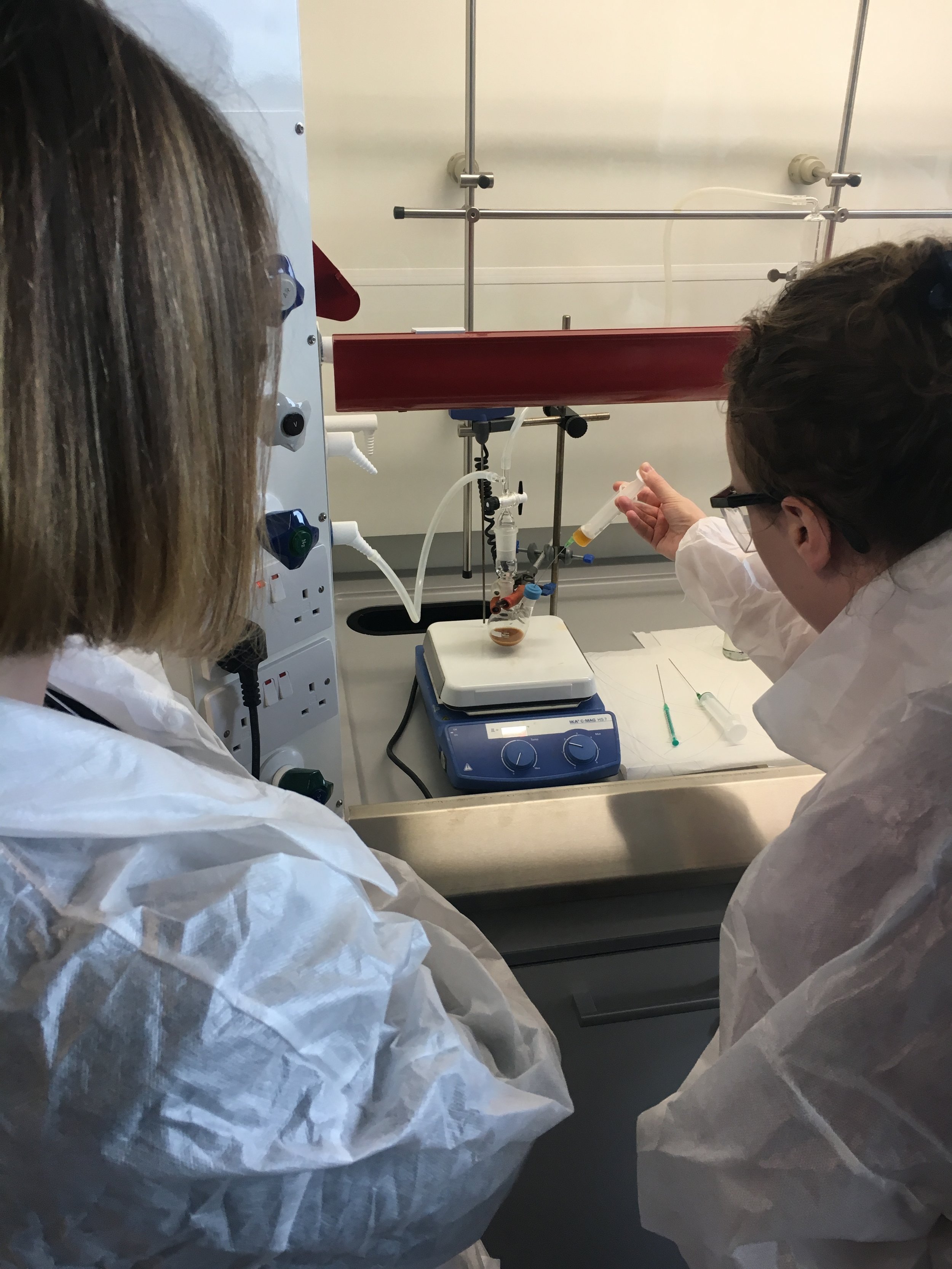In June 2017, members of the Kellett research group and the ClickGene ETN attended the historic XVII Symposium on Chemistry of Nucleic Acid Components (SCNAC) in the beautiful town of Cesky Krumlov, a UNESCO World Heritage Site in the Czech Republic.
Contributions to this conference covering 5 main themes: (i) organic synthesis of nucleosides, nucleotides and oligonucleotides, (ii)medicinal chemistry and pharmacology, (iii) biochemistry and chemical biology of nucleic acids and (v) nucleic acids based functional molecules and materials.
Plenary lectures were delivered by collaborators Prof. Tomas Carell and Prof. Michal Hocek (Organiser) with almost 100 posters were presented by postgraduate students and postdoctoral researchers.
Presentations from the Kellett group included:
- Andrew Kellett – Polynuclear Metallodrug — Nucleic Acid Interactions: New Therapeutic and Biochemical Applications (Oral presentation)
- Nicolo Fantoni, Zara Molphy / Andrew Kellett – Artificial Metallo-Nucleases for Gene Editing (Poster presentation)
- Creina Slator / Zara Molphy / Andrew Kellett — Di-Copper Complexes Promote NCI-60 Chemotherapy by Intracellular Superoxide and Singlet Oxygen Facilitated DNA Damage (Poster presentation)
Postgrads and postdocs enjoyed a paddle down the Vltava River and exploring Český Krumlov town and Castle. Thanks to Michal Hocek and his team at the Institute of Organic Chemistry and Biochemistry (IOCB, Prague) for a great week of nucleic acid chemistry.
